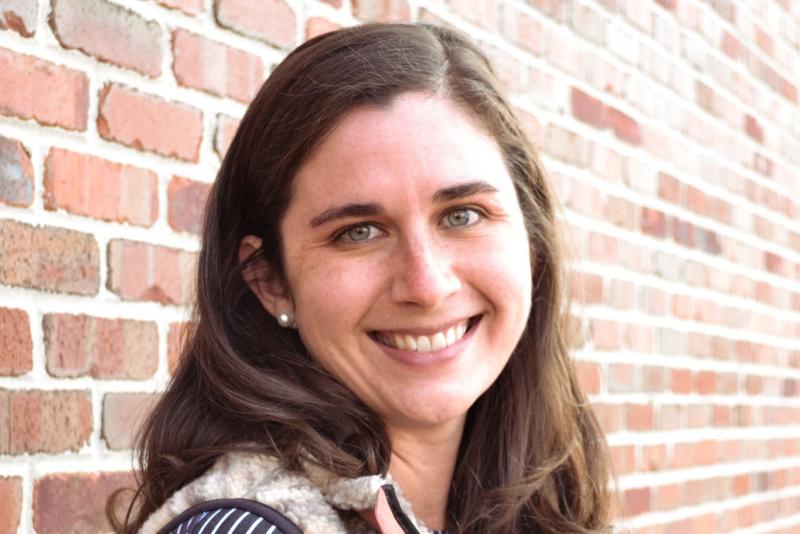CAHSS Psychology Professor Addresses Rising Parental Stress

The U.S. Surgeon General recently issued an advisory on parental pressure, citing sharply rising rates of stress among U.S parents, with some 48% of parents reporting feeling completely overwhelmed by stress on most days.
As a supervisor in the College of Arts, Humanities & Social Sciences (CAHSS) Department of Psychology’s Center for Child & Family Psychology, Associate Professor Angela Narayan is familiar with the problem. She teaches graduate students to deliver effective therapy treatment to children, adolescents, parents and families. A parent of young children herself, she also conducts research through the department’s PROTECT Lab, where she studies parental stress and how to help parents become more resilient.
CAHSS News asked Narayan to share her insights on the subject and provide tips for parents on reducing stress and strengthening their parent-child relationships.
Is the Surgeon General’s advisory consistent with your research and, if so, what is causing this?
Yes. The pandemic really leveled the playing field. Regardless of income level, parents who were working had to parent without childcare while also meeting work expectations. The level of parental guilt over not satisfying career and parenting goals was super taxing.
Post-pandemic, we’re still multi-tasking all the time. We’re also in a culture where there are opportunities for kids to do any activity they want. When you see people having their two-year-olds in soccer, their three-year-olds in hockey or their four-year-olds in acting class, you feel pressured to have your kids do these things, too. It creates this social pressure that parents must keep their kids busy and challenged or their kids will miss out and fall behind in skills compared to their peers. This presents a whole other challenge for low-income parents who are working multiple jobs just trying to pay the bills.
It sounds like certain groups are disproportionately affected by parental stress. What does your research show?
Low-income families often can’t access adequate childcare, much less extracurricular or enrichment programs due to increasingly unaffordable rates. I run a study where we’ve been following parents from pregnancy through infancy and to the last year of their child’s preschool, and their first year of kindergarten. We’ve looked at 250 women who delivered at Denver Health, were at least 18 years old and spoke English. Because we recruited from the public hospital we got a more low-income sample. We’re finding many of those children are entering kindergarten behind in self-regulation skills because they had no early childhood education which teaches children self-control, how to share, play and regulate emotions and behaviors.
The good news is that the vast majority of teachers report that these kids are well-liked by peers and staff, but they enter schooling with vulnerabilities to attentional and behavioral issues, especially if they continue to experience stress and unpredictability at home.
What have you seen in terms of how parental stress affects children in general?
Children don’t necessarily need their parents with them all the time, which is why decades of studies have shown that safe, structured and reliable childcare is often more helpful than not. But children do need their parents to be predictable, warm and supportive when their parents are with them. From the kid’s perspective it’s about getting their needs met by a parent they can count on regularly. Stress makes parents more unpredictable and that can spill over to not being able to give children the attention, affection and soothing they need.
What steps can parents take to help children feel more secure?
I encourage parents to put themselves in their children’s shoes. For example, a one-year-old is learning about their attachment figures and who’s going to be there to meet their needs, comfort them when they’re crying; delight in them when they’re happy. Two and three-year-olds are working on independence and managing big emotions. At four or five, kids are learning to stop and think, sit still and calm their bodies. If their parents are not consistently responsive and supportive in terms of helping children with these developmental milestones, these issues can show up later in school as difficulties in sitting still, listening, focusing and coping with different feelings.
We encourage people to give their kids a consistent and predictable time — even just 15 minutes a day — to consistently show up for them. It could be dinner, story time, bedtime — something children can count on every day. We also recommend taking time together to do something the child wants to do and increasing the amount of positive time you spend together.
What can parents do to help manage their own stress?
Anything that helps them breathe deeply and feel grounded and calm — even 15 minutes a day can be sufficient. It could be a walk, yoga, riding a bike or listening to a podcast. I swim laps for only about 20 minutes a day but it’s one of the few times that I breathe deeply and reset.
How can we as a CAHSS community better support our colleagues, family and friends who are parents?
Isolation and lack of social support are some of the biggest risk factors affecting parents’ mental health, and in turn, higher odds of negative parenting and in the worse cases, abuse and neglect of kids. We can build community by providing child-focused social activities — ice cream socials, group play dates at parks, food trucks, farmers’ markets or other festivals — anything that brings parents, children and families together and also provides parents with access to other supportive adults.
In our psychology department, we try to build community by encouraging people to eat outdoors together and often motivate people with a five-dollar gift certificate to Kaladi’s coffee shop to encourage them to get coffee together. And if we can do something on the weekends or after work together that involves kids, that’s a plus.
Where can parents who feel like their stress is out of control find help?
Parents can ask their primary care health provider for a referral that might be covered by their insurance. And although our community clinic in the Department of Psychology doesn’t take insurance, it is affordable and provides mental health assessment and intervention to parents and youth on a sliding scale. Our psychology graduate students serve as the assessors or therapists because they are in training and our licensed psychologists supervise each case. Clients receive reduced costs because it is a training clinic, but receive care from a highly trained PhD student, as well as a licensed psychologist.
What has worked best for you personally?
Taking regular time for myself and reminding myself to not feel guilty. It enables me to be all-in when I’m with my children, playing a lot, prioritizing our time at home to decompress. I also try to build and maintain relationships. Positive relationships are a lifeline – for everyone. When I’m meeting other families at the playground with my kids, I’m getting and giving support, my kids are having fun — everyone wins.





